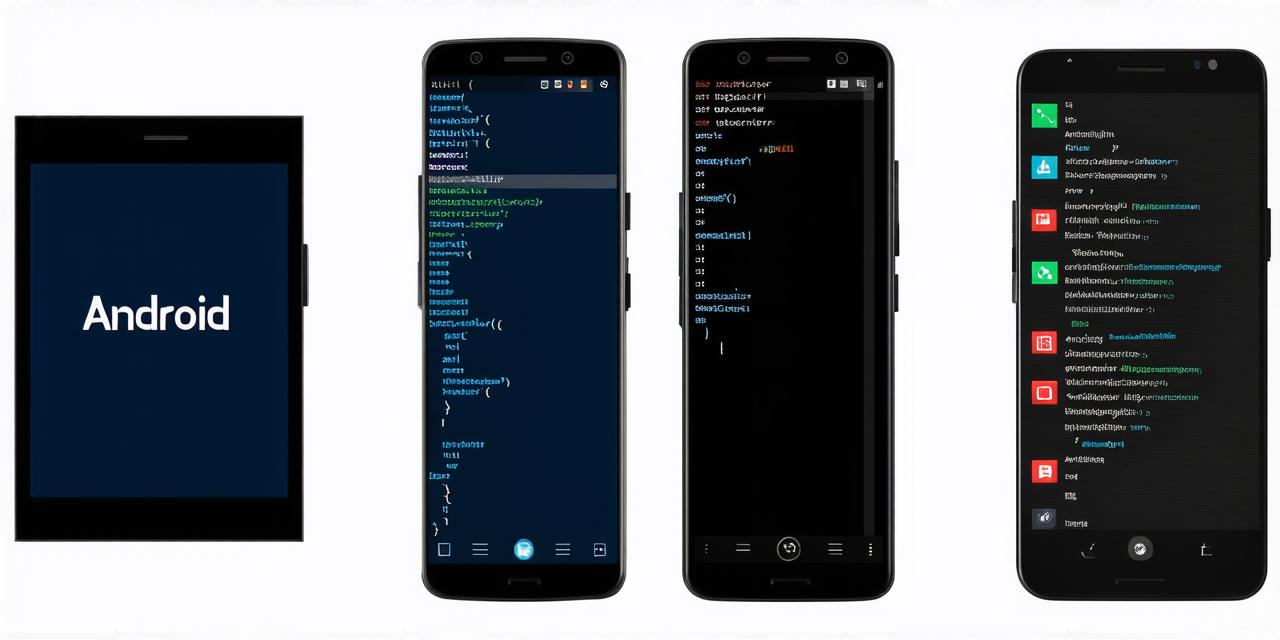Android is one of the most popular mobile operating systems in use today. With billions of active users and an ever-growing app ecosystem, it’s no wonder that developers are drawn to this platform. But what sets Android apart from its competitors, and why does it rely on Java for app development?
The History of Java and Android
Java is a high-level programming language that was first developed by Sun Microsystems (now owned by Oracle) in 1995. It was designed to be platform-independent, meaning that code written in Java can run on any device or operating system that has a Java Virtual Machine (JVM) installed.
Android was created by Google in 2008 as an open-source mobile operating system based on the Linux kernel. It was initially designed as a competitor to Apple’s iOS, but it quickly gained traction due to its flexibility and customizability. One of the key factors that contributed to Android’s success was its ability to run on a wide range of devices, from low-end smartphones to high-end tablets and wearables.
Java and the Android Development Kit (SDK)
When Google first released the Android SDK in 2008, it included support for Java development. This allowed developers to write code once and deploy it across multiple devices, without having to worry about platform-specific differences. The use of Java also made it easier for developers to find resources and support online, as there was already a large community of Java developers who could provide help and advice.
One of the key features of the Android SDK is its ability to compile code written in Java directly into native code that can run on the device’s hardware. This process is known as “just-in-time” compilation, and it allows apps to run faster and more efficiently than they would if they were interpreted by the JVM.
Benefits of Using Java for Android App Development
There are several benefits to using Java for Android app development:
- Platform independence: As mentioned earlier, one of the main advantages of using Java is that it allows code to be written once and deployed across multiple platforms.
- Large community: Java has a large and active community of developers, which means that there are plenty of resources available online for learning about the language and getting help with development projects.
- Flexibility: Java is a flexible language that allows developers to write code in a variety of styles and paradigms. This means that developers can choose the approach that works best for their project, whether that’s object-oriented programming, functional programming, or something else entirely.
- Libraries and frameworks: There are many libraries and frameworks available for Java development, including Android-specific ones like Retrofit and Dagger. These tools can help developers build apps more quickly and efficiently, by providing pre-built components that handle common tasks like networking and dependency injection.
- Cross-platform development: With the advent of Android Studio, it’s now possible to develop apps for multiple platforms using a single IDE. This means that developers can write code once and deploy it across Android, iOS, and other platforms, saving time and effort in the process.
Challenges of Using Java for Android App Development
While there are many benefits to using Java for Android app development, there are also some challenges to consider:
- Learning curve: Java can be a complex language, particularly for developers who are new to programming. It takes time and effort to learn the syntax and best practices of the language, which can be a barrier to entry for some developers.
- Performance issues: While just-in-time compilation helps to improve app performance, it’s still possible for Java apps to be slower than their native counterparts. This is because Java code has to be interpreted by the JVM, which can add an extra layer of overhead to execution.
- Memory usage: Java apps can consume a lot of memory, particularly if they are using large data structures or performing complex calculations. This can be a problem on devices with limited RAM, as it can cause the app to slow down or even crash.
- Security issues: Because Java is an open-source language, it’s more vulnerable to security threats than native code. This means that developers need to be extra cautious when writing code for Android apps, and take steps to protect against common vulnerabilities like SQL injection and cross-site scripting (XSS).
Real-World Examples of Java in Action on Android
Despite the challenges outlined above, many successful Android apps are built using Java. Here are a few examples:



